May 21, 2025 | 08:08 GMT +7
May 21, 2025 | 08:08 GMT +7
Hotline: 0913.378.918
May 21, 2025 | 08:08 GMT +7
Hotline: 0913.378.918
These days, vegetable and flower growers in Thai Phien flower village (Ward 12, Da Lat City, Lam Dong Province) are focusing on improving their fields and gardens, sowing seeds in preparation for the winter-spring crop and especially for the upcoming Lunar New Year.
According to Nguyen Dinh Cung, a daisy grower, the COVID-19 pandemic has seriously affected the revenue from the local gardens. Flowers could not be sold, making the revenue un able to cover expenses
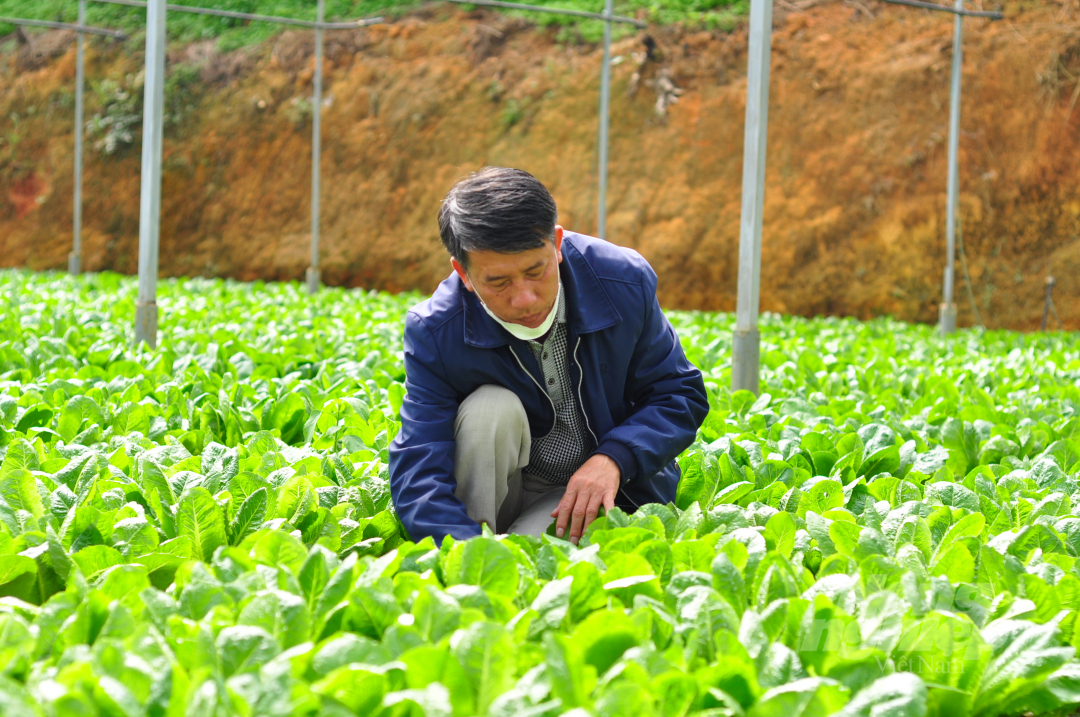
Da Lat farmers embark on re-production after the pandemic. Photo: Minh Hau.
Currently, as the pandemic is basically under control, the domestic markets have started to demand flowers again so his family has been concentrated in investment and production.
He said: “Recently, my family tried to preserve the flower crop for the full moon of September (September 15 of the lunar calendar) and luckily the market reopened. Flowers are sold evenly at a high price so we have earned a significant income. After this batch of flowers, we will focus on producing flowers to supply for the demand in the last months of the year, especially for the Lunar New Year market."
Also in Ward 12, Nguyen Thi Hue's family is focusing on improving their garden and starting to plant vegetables. They mainly grow lettuce and crown daisies in their gardens. During the outbreak of the COVID-19 pandemic, the social-distancing measures were implemented within the region, which made them unable to sell vegetables and suffer from loss. Nearly 2 hectares of their garden have been almost left empty since August. Currently, as the markets are gradually re-opening, she has embarked on reinvesting and planting new crops.
Tan Tien General Agricultural Service Cooperative in Ward 12 is also implementing a series of post-epidemic production plans. According to Mai Van Khan, director of the cooperative, the total area that is jointly cultivated by both the cooperative and local farmers is about 80ha, growing vegetables of all kinds with an annual output of thousands of tons.
During the forth outbreak of the epidemic, specifically from June to August, the cooperative's vegetable consumption channel was broken and about 70 tons of vegetables could not be sold.
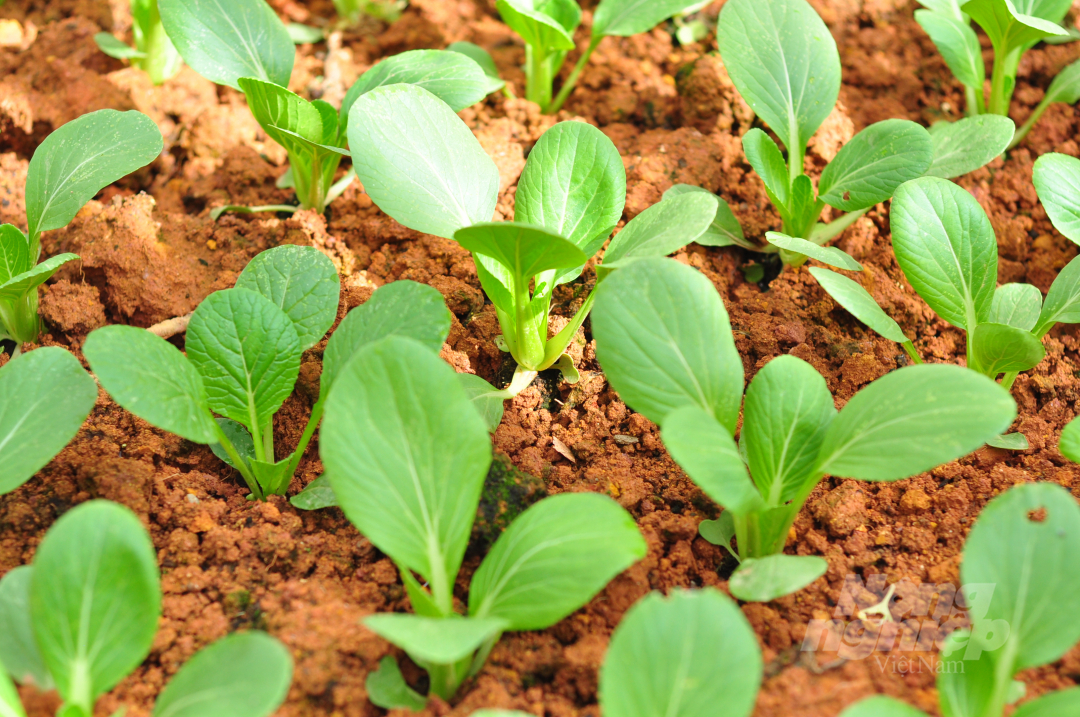
Leafy vegetables are produced by Da Lat farmers to serve the year-end markets. Photo: Minh Hau.
“The cooperative is organising the cultivation of vegetable varieties such as carrots, potatoes, onions, bell peppers, while increasing the area of short-term leafy vegetables to ensure meeting orders from the wholesale markets in HCMC,” he said.
He added that the markets are re-opening with high demand for goods, so the production of the cooperative is not sufficient to meet demand. Many vegetables are not stocked enough to supply partners even though the prices are many times higher than usual.
“During the pandemic months, the cooperative maintained production despite the difficulty of inputs such as fertilizers and agricultural materials. After the pandemic, we have drawn lessons in production and response to unusual phenomena. Currently, we plan to produce according to orders, ensuring the input factors for active production.
We have also been specialised on vegetables, tubers and fruits suitable for current conditions and preliminary processing, processing and preservation…”, the director continued.
Meanwhile, flower growers in Thai Phien Village have also embarked on re-production after the pandemic. Many gardeners specializing in chrysanthemums, lilies, carnations... have sown seeds to prepare for the year-end market, especially the Lunar New Year.
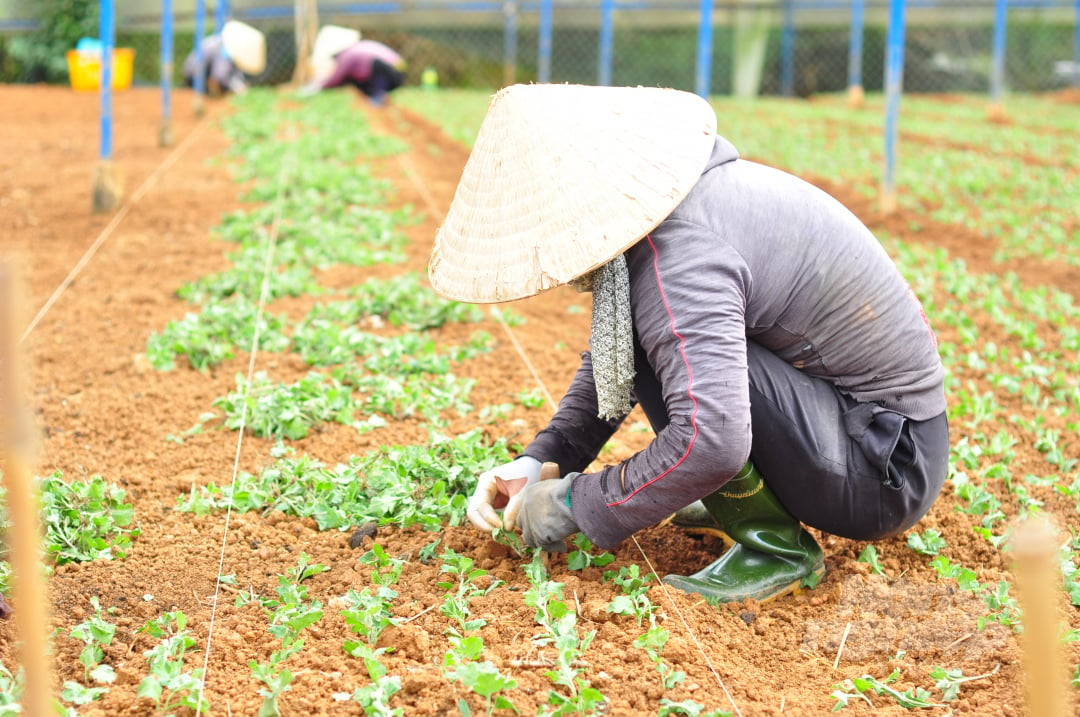
Da Lat farmers sow daisy seeds. Photo: Minh Hau.
Nguyen Thanh Cung, a senior daisy grower in the village, revealed that his family suffered heavy loss in recent months, as they cut more than 2,000 square meters of daisies.
At the beginning of October, the market started to recover, so his family borrowed money to reinvest and re-produce flowers.
According to Dang Bao Vinh, Chairman of the Farmers' Association in Ward 12 (Da Lat City), the locality has a large area of growing vegetables and flowers. During the outbreak of the COVID-19 pandemic, many vegetable and flower producing families were severely affected.
Currently, the pandemic has been basically controlled and social distancing measures have been eased so local vegetable and flower have been consumed again at relatively good prices.
Meanwhile, the garden areas that were left vacant during the pandemic have been renovated, sown, and restored by farmers. Long-lasting flowers such as daisies and lilies have been two main kinds of flowers being planted by local farmers to serve the Lunar New Year demand.
“The locality is going to plant lilies on about 12-15 hectares of land to prepare for the Lunar New Year markets. Production has been promoted but farmers are facing difficulties in capital and seed sources. Lily farmers have to order seeds from abroad and deposit money in advance so it is difficult for households who have lost money during the pandemic to reinvest. Therefore, it is estimated that about 30% of farmers have difficulties in obtaining seeds. Meanwhile, many local daisy seed producers cannot maintain activities during the pandemic, so the source of daisy seeds for Lunar New Year production is also about 20-30% short," said Dang Bao Vinh, Chairman of the Ward 12 Farmers' Association.
Translated by Luong Huong
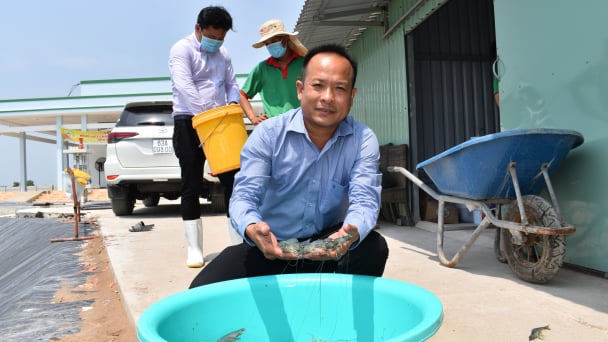
(VAN) One of the key factors for businesses to effectively take advantage of tariff preferences under these FTAs is the rules of origin.
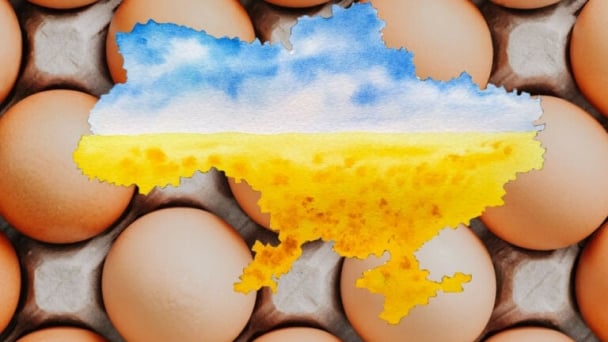
(VAN) Oliyar, a prominent Ukrainian oil and fat manufacturer, has revealed plans to build a farm for 2.3 million laying hens in the Lviv region. The additional production quantities promise to change the competitive landscape of the egg market of the Eastern Europe region.

(VAN) On May 15, Ministry of Agriculture and Environment of Vietnam hosted the 'Connecting Vietnam - Germany agricultural, forestry and fishery trade' seminar in Berlin, Germany.

(VAN) In the face of counterfeit and imitation products, Khanh Hoa Salanganes Nest Company hopes for the prompt completion of the legal framework, strict enforcement against violations, and protection of the bird’s nest brand.

(VAN) Japan's efforts to lower the price of rice through the release of its stockpile may finally be making some progress, albeit at a snail's pace.

(VAN) U.S. tariffs are not only a 'shock', but also an opportunity for Vietnamese businesses to renew their mindset toward comprehensive development.

(VAN) As Bac Giang lychee enters the harvest season, Minister Do Duc Duy expects that the fruit will contribute greatly to agricultural exports due to standardized production and deep processing.